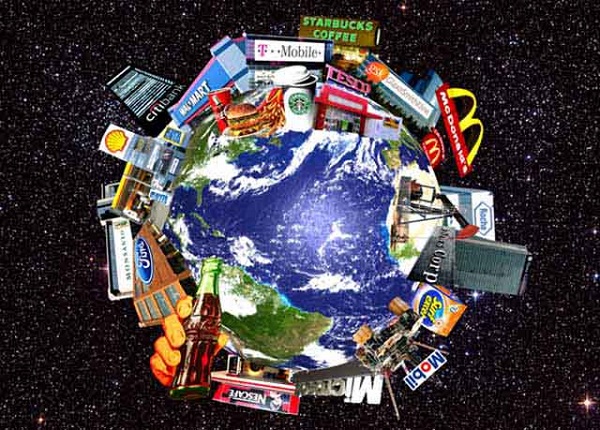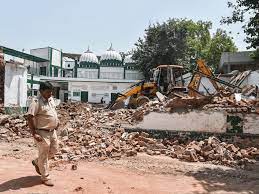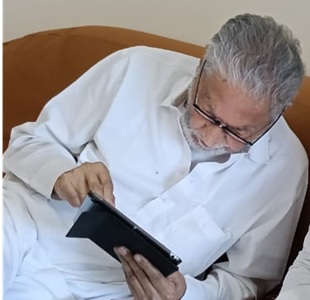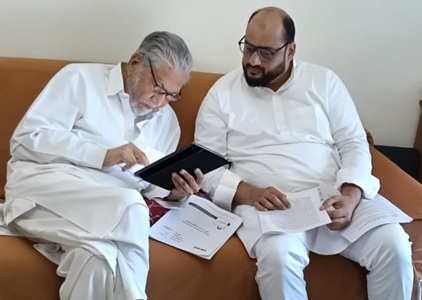By Amit Dasgupta
The last quarter of 2001 saw two dramatic events that had a transformational impact on the global community: first the terrorist attacks on the US in September followed by the launch of the Doha Development Round through the WTO’s 4th Ministerial Conference in Qatar in November.
A couple of months prior to the commencement of the conference, Muraosoli Maran, then the Indian commerce minister, commissioned a book to be released prior to the meeting. The objective was to capture the sentiments and, more importantly, the fears of the developing and under-developed countries, as seen through the member states of SAARC. Bibek Debroy and I edited the volume, which, thereafter, went into multiple editions.
After the manuscript was complete, Bibek and I argued about the title. All the chapters in the book were highly critical of the WTO and the arm-twisting of the developed countries – especially the US and EU, as also the autocratic manner in which the WTO, under its then director general, Mike Moore, was functioning.
I had argued that there was a clear political agenda, driven primarily by the US, as to why the Doha Round was being dubbed the ‘Development Round’. None of the developing countries, for instance, were demanders of a Development Round. It was a proposal from the developed countries, especially the US. In my view, post-9/11 and the WTO negotiations were intrinsically linked. Washington needed friends because chasing Al Qaida through overt and covert operations would necessarily require friendly and cooperative governments in the developing world.
It was my assessment that proposing a development round was to win friends and influence governments in poor countries. This was nothing short of deception at the highest level. After all, a genuine development round meant that trade would lie at the heart of the development agenda with the developed world unilaterally opening-up to products from poorer countries. This was least likely to happen. I believed then, and I maintain now, that the WTO is a rich man’s club and that Doha was a fraud foisted on the developing world as it was always intended to collapse.
My suggestion to Bibek, consequently, was to title the book: Savaging the WTO. With supreme diplomatic finesse, Bibek persuaded me to agree to something milder and the book was finally published under the title: Salvaging the WTO Future – Doha and Beyond. Maran released the book on the eve of his departure for Doha and was forthcoming in expressing his apprehensions on the proposed Round.
After almost 15 years, the Development Round negotiations are yet to be concluded. Nobel Prize winning economist Joseph Stiglitz had argued that “the so-called free trade talks should be in public and not corporate interest” if they are to be genuinely development oriented; instead, in his view, the talks would perpetuate a managed trade regime and a negotiation process that is undemocratic and non-transparent.
The mandated deadline of July 31 to agree on a clearly defined work programme on the remaining Doha issues, especially because they have been so polarizing, has gone without substantive progress. India, too, has already given indication that it will not ratify the trade facilitation pact for want of any visible progress in negotiations on finding a permanent solution on food security for public stockholding purposes.
At a time when farmers’ suicides continue unabated, the government recognizes that it is first accountable to its own people and not to an amorphous multilateral trading system that is visibly biased in favour of developed countries. For the WTO Secretariat, the talks are a make-or-break scenario that clearly reflects the widening chasm between rich and poor countries. Indeed, even the most diehard negotiator would concede that talks on the Doha Development Round are on the verge of collapse.
The US does not see any significant gains through a successful round. Consequently, it is focussing on regional agreements. Europe is crisis-ridden to offer any major concessions. The Chinese economy is under severe strain with signs of a slowdown. A well-crafted deception, forged in the aftermath of 9/11, has played itself through successfully. Development was never the end objective.
Perhaps it is time to ask if WTO, controlled as it is by the corporate sector and developed countries, can legitimately be the policeman, guardian and rulemaker of the international trading system. If not, the obituary for the Doha Development Round might well turn out to be the obituary for the WTO as well.
( Amit Dasgupta, a former diplomat, is the head of the Mumbai campus of the SP Jain School of Global Management. The views expressed are personal. He can be reached at amit.dasgupta@spjain.org)






0 Comments